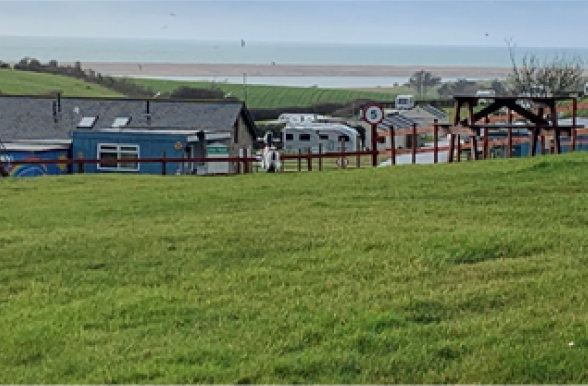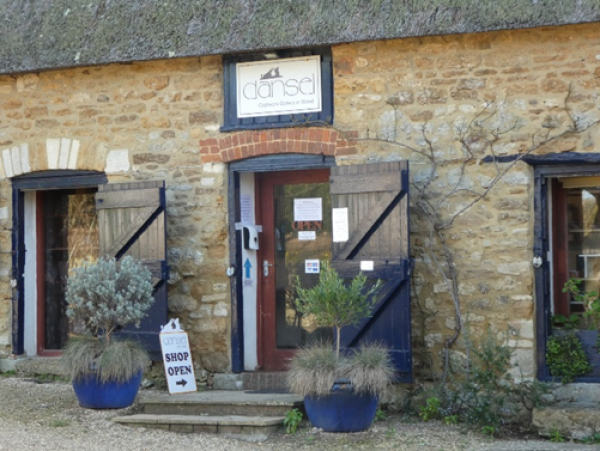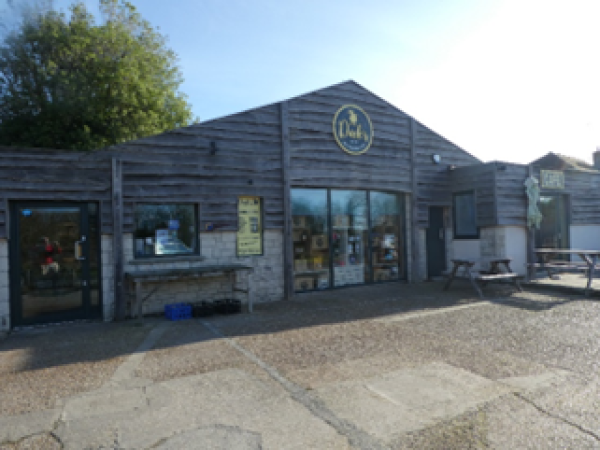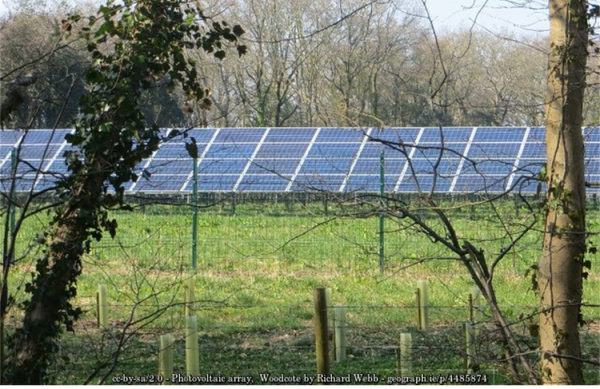
6.1.1 Based on responses to our local surveys, many local residents work within the hospitality / tourism business and in public sector jobs (administration and defence). About one half of those in work commute to jobs outside Chesil Bank – predominantly Weymouth and Dorchester. About 8% of those in work or of working age were either looking for a different job or more working hours. The main barrier they told us about was, simply, the lack of suitable opportunities.
6.1.2 Many local businesses are relatively small in scale (sole traders or micro businesses), some of which are based from home, and others in premises ranging in size from around 20sqm up to over 300sqm. The business owners had generally set up business here because they already lived or owned land here (or had taken over a family business), or because of the natural environment and quality of life that suited their needs. Local tourism businesses tend to provide the most jobs, but this includes a significant level of seasonal work. As a result of the Covid-19 pandemic there has been greater use of ‘pop-up campsites’ under permitted development rights. Whilst this has provided a welcome income stream in difficult times, it has also highlighted concerns about tourist-related traffic and the visibility of such sites within the much loved views spanning across the AONB and Heritage Coast.
6.1.3 About half of all businesses (48%) said that they did have difficulty recruiting staff, the main reasons being the lack of appropriate skills and transport (for staff coming to work but living outside the area).
6.1.4 As part of the call for sites, Sea Barn Farm, West Fleet Farm and Bagwell Farm Touring Park in Fleet put forward proposals to improve the existing caravan and camping sites, to enhance the facilities and infrastructure to further improve the offering of the camping park during the shoulder season. They explained that improvements could include the addition of a café/ parking and recreation areas, provision for electric vehicle charging, solar energy harvesting, more energy efficient shower blocks, introduction of wildlife observation “hides”, eco-lodges, more indigenous hedges, the reorganisation of the site layout to reduce density, and additional storage and staff accommodation. Whilst such improvements were generally supported by those responding to the consultation, without further detail it would be difficult to be sure that there would be no harm to the special character of the area, given the sites’ location in proximity to Chesil Bank and the Fleet. As such, it is proposed that the Local Plan policy ECON7, which relates to camping and caravan sites, should be used to consider such proposals.
6.1.5 No specific sites were put forward by landowners seeking to develop land for more general employment, and there was limited evidence of demand for new premises from existing businesses. Local residents would welcome additional small-scale businesses (including workshops and tourism enterprises8 ) locating to the parish. Larger scale enterprises were not considered to be suitable.
6.1.6 It is feasible that new businesses could be attracted to the area – either set up by people already living locally, or those moving into the area. This may be for specific enterprises, or could be developed to rent in whole or part as more flexible workspace. It is clear that any new premises should have reliable and speedy broadband connection, and that any businesses that are dependent on good access for deliveries / customers are well located to the main road network.
Figure 12: Camping and Caravanning Sites

Figure 13: Dansel Gallery, Abbotsbury

Figure 14: Ducks Deli and Farm Shop, Portesham

6.1.7 New small business enterprises are regularly attracted to the area, and more should be encouraged and as an example of inward investment from existing businesses, Abbotsbury Tourism has closed down and is now re-configuring its Children’s Farm site into a craft-centre, with between 3-6 units opening in the next two to three years.
6.1.8 The following policies have therefore been drafted to guide new business investment such as workshops and service-based enterprises, tourism and care-related accommodation. It links with the policy on holiday lets and principal residency restrictions (CBNP3) which is intended to ensure that where new homes are built in the parishes of Abbotsbury, Fleet and Langton Herring, these are used as the principal residence, to better support the balance of those living full time in the community and second home owners / holiday-makers.
6.1.9 The second policy supports the continuation of homeworking opportunities, to allow people to be able to start up and grow businesses, or avoid the need to commute into nearby towns, through working from home, provided that this would not have an adverse impact on the local area and neighbouring residents. In many cases a modest sized office outbuilding may be possible under permitted development rights, and the policy is intended to support such development where planning permission is needed. Permitted development rights do rule out further outbuildings where this would result in more than 50% coverage of the residential curtilage, and this is considered to be a useful guide to ensuring that there is sufficient garden area remaining for typical household use.
CBNP10. Sustainable Business Growth
Small-scale employment development (Use Class E) of a size appropriate to the rural nature of the area will generally be supported within or adjoining the settlements of Abbotsbury, Portesham and Langton Herring or through the re-use or replacement of an existing building. Elsewhere, in the wider countryside, including in and around Fleet, opportunities for new and expanding businesses will be limited to: existing premises (including their possible replacement or small-scale extension); as part of a farm diversification scheme; or justified on the basis that a rural location is essential for that type of business.
New built tourist and care-related accommodation will be supported within Portesham, or through the re-use and adaptation of an existing building.
All employment development should respect the character of its surroundings by way of its scale, massing, design and landscaping. It should avoid harming the intrinsic qualities of the surrounding area by including appropriate mitigation against excessive noise, traffic, light pollution and similar problems, and safeguard residential amenity. Sites that are particularly sensitive due to their heritage, biodiversity of landscape contribution should be avoided.
CBNP11. Homeworking
The provision of outbuildings for home working should be supported, subject to Policy ENV1 of the West Dorset, Weymouth and Portland Local Plan, provided:
6.2.1 Our resident’s survey showed a good deal of support for developing a renewable energy scheme to make our villages more self-sufficient and reduce the cost of energy supply. Given a choice, more people would favour the type of schemes that would be less visually intrusive (i.e. not onshore wind or commercial scale solar farms).
6.2.2 The 2015 adopted Local Plan policy COM10 supports renewable energy schemes, providing that the benefits of the development, such as the contribution towards renewable energy targets, significantly outweigh any harm, and that the adverse impacts can be satisfactorily mitigated. Given that no specific sites or projects have been identified as yet, it is proposed that the general Local Plan policy provides an adequate framework at this time, and the Parish Council will help set up a project group of local volunteers to investigate whether a suitable scheme and site can be identified.
Project 2. Investigating the feasibility of a community renewable energy scheme
The Parish Council will support local volunteers to set up a Community Renewable Energy Scheme Project to investigate whether a suitable scheme and site can be identified.
Figure 15: Example of Solar Farm in Woodcote, Devon

8 Most of which should fall within Use Class E – which includes retail, restaurants / cafes, financial and professional services, indoor sport / recreation, healthcare, creche / nursery and other office / industries that can be carried out in a residential area without detriment to its amenity.
< Previous | ^ Top | Next >